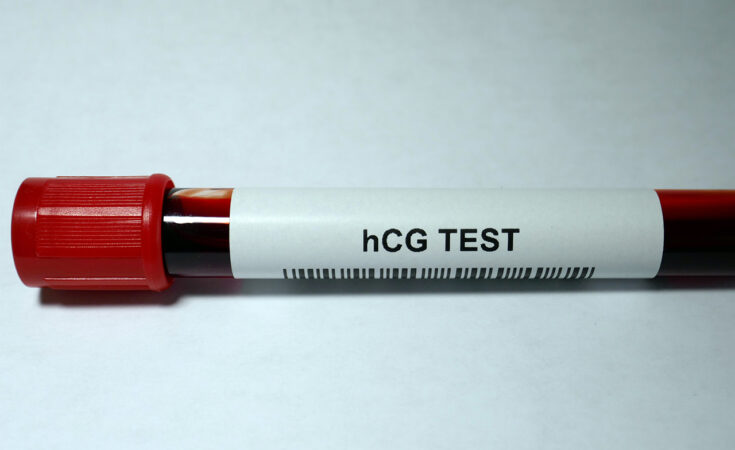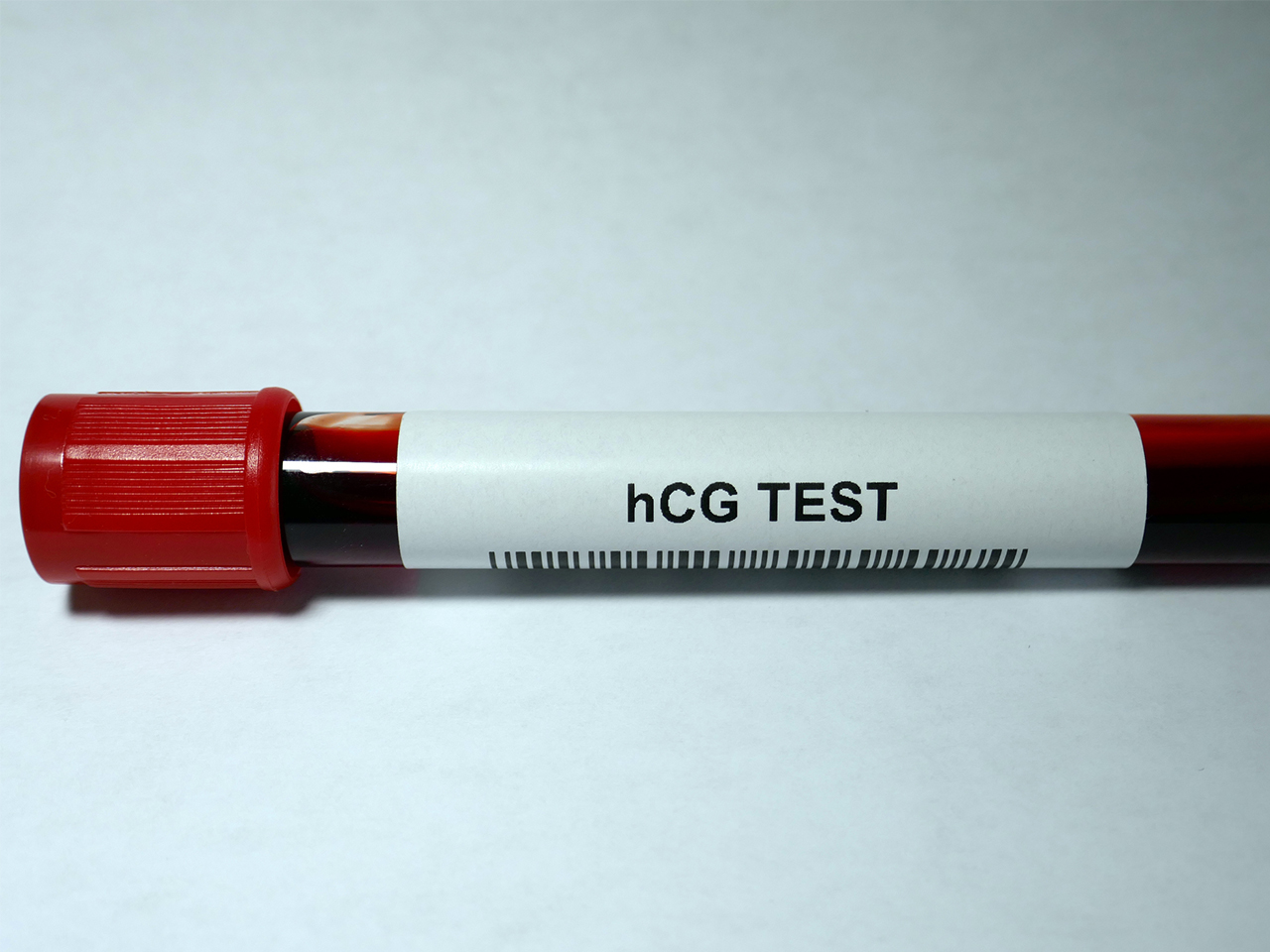The pregnancy hormone hCG is a sign that you’re pregnant, but experts say not to read too much into a number.
It’s one of the first ways we know for sure we’re pregnant: the hCG hormone. But just what do these three letters stand for, and what’s the significance of them? This primer has all the details about hCG, from what it is, to how often it’s measured, along with everything you need to know about hCG levels that are too low, too high or just right.
What is hCG?
Short for human chorionic gonadotropin, hCG is a hormone produced by the outer layer of an early-pregnancy and pre-embryo structure called the blastocyst. It’s a crucial part of early pregnancy—this outer layer (called the trophoblast) provides the embryo with nutrients and later forms part of the placenta and fetal membranes, says Julia Kfouri, a maternal fetal medicine specialist at Mount Sinai Hospital and an assistant professor in the department of obstetrics and gynaecology at the University of Toronto.
The hCG hormone is usually a sign of pregnancy, but it can also indicate an ectopic pregnancy, where a fertilized egg implants itself somewhere other than the uterus.
How are hCG levels detected in pregnancy?
HCG production starts right after implantation, but the levels are very low at first. They increase rapidly in the first few weeks, and home pregnancy tests can typically detect hCG in urine once it reaches 25 mIU/mL or higher (although some can detect in at lower levels). This is generally around 12 to 14 days after conception or a couple of days before your expected period. Home pregnancy tests don’t provide an exact reading of hCG levels; they simply confirm if your hCG levels are high enough to indicate pregnancy.
Blood tests are more sensitive, which means they can detect pregnancy earlier than urine tests but by no more than a few days. Blood tests can also tell you what your exact hCG levels are at that time.
When will my hCG levels be checked?
A positive hCG result from a home pregnancy test or blood sample at your doctor’s office is the first indication that there is some trophoblastic tissue present (meaning you’re pregnant), but it won’t confirm if your pregnancy is progressing normally, says Kfouri. You may have a follow-up blood test around 48 to 72 hours later to check if your hCG levels are rising. If your hCG levels are in the normal range and the test confirms that they’re rising steadily, you won’t have your blood tested for hCG again unless you or your doctor suspects an ectopic pregnancy, a miscarriage or gestational trophoblastic disease (a severe and extremely rare condition involving tumours in the uterus that can occur during pregnancy or after a miscarriage, an abortion or a pregnancy).
Estimated hCG levels by week (measured from the first day of the last menstrual period)
Normal hCG levels vary widely among women, but healthcare practitioners still use the measurement as an indicator of approximate gestational age. In a healthy pregnancy, hCG levels will increase at least 50 percent every 48 hours, though it is more common for them to double every 48 hours. They typically peak at around 10 weeks.
This hCG levels chart shows typical hCG levels by week throughout pregnancy
3 weeks LMP 5-50 mIU/mL
4 week LMP 5-456 mIU/mL
5 weeks LMP 18-7,340 mIU/mL
6 weeks LMP 1,080-56,500 mIU/mL
9 to 12 weeks LMP 25,700-288,000 mIU/mL
13 to 16 weeks LMP 13,300 to 254,000 mIU/mL
17 to 24 weeks LMP 4,060 to 165,400 mIU/mL
25 to 40 weeks LMP 3,640 to 117,000 mIU/mL
Source: American Pregnancy Association
What does it mean if I have low hCG levels?
Low hCG levels can simply be a sign of a very early pregnancy, but if they fail to increase a few days later, they could suggest an ectopic pregnancy. However, you would only know if your hCG levels fail to increase if you take a blood test and follow it up with a second blood test a few days later. They could also mean that a miscarriage has taken place. “If someone has a correct beta hCG rise early in the pregnancy and experiences vaginal bleeding at 10 or 11 weeks, the first thing we would do is request an ultrasound to characterize the pregnancy,” says Kfouri.
What if I have high hCG levels?
High hCG levels and twins
A high hCG number could indicate a multiple pregnancy, however it it is not conclusive. An ultrasound is needed to confirm if you are carrying twins or triplets.
Wrong gestational age
If you have a higher than expected hCG level, you could be farther along in pregnancy than you thought. A dating ultrasound can confirm how many weeks pregnant you are.
Medical reasons for high hCG levels
High hCG levels could be a sign of gestational trophoblastic disease (GTD) or a molar pregnancy. If your early hCG reading is extremely high, you will need an immediate follow-up appointment to determine the cause. Your healthcare practitioner may also test your hCG levels later in the pregnancy if you experience hyperemesis gravidarum (severe morning sickness), a thyroid storm (a dangerous increase in heart rate, blood pressure and body temperature) and vaginal bleeding, all of which are possible signs of GTD.
When will my hCG levels go back to pre-pregnancy levels?
With a normal pregnancy, hCG will eventually become undetectable—typically by six weeks after delivery.
Stay in touch
Subscribe to Today’s Parent’s daily newsletter for our best parenting news, tips, essays and recipes.



































